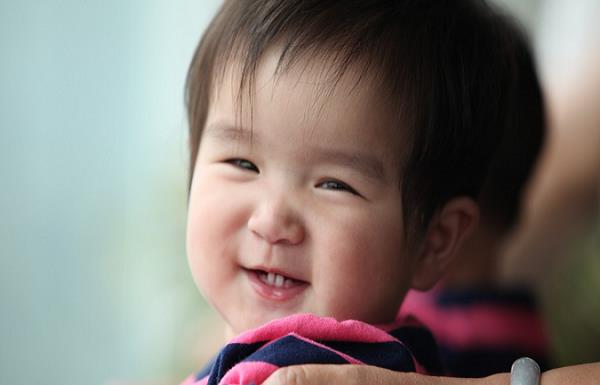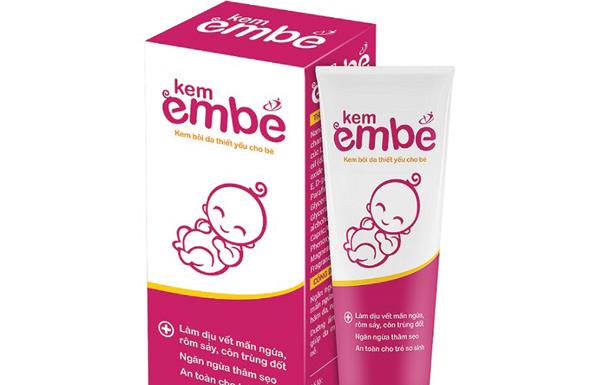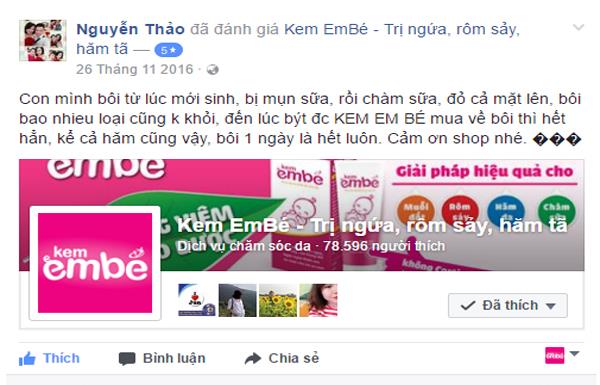Among the diseases related to the child's skin, eczema is a concern of many mothers and fathers. Eczema usually occurs in babies between 2 months and 2 years of age, but a few cases occur in older children. This is just a disease in addition, so parents should not be too worried when they see their children, but should care and clean the child's skin properly, this phenomenon will quickly disappear.
content
What is eczema?
Why is baby skin eczema?
How to take care of baby's skin with eczema?
What is eczema?
Eczema, also known as whooping milk, is found in about 20% of babies. Visible manifestations are small white papules, round shape, well floating on the skin, clustered, often appearing on the cheeks, forehead and chin. These white rashes after a short time will ooze water, close eyebrows on the damaged skin, causing itching and discomfort for the baby.
Usually, milk papules appear in babies as young as 3 weeks old, can also appear from birth, boys are more affected than girls. Most babies develop eczema on the face, including the cheeks, and sometimes on the scalp.

Why is baby skin eczema?
The causes of infant eczema can be attributed to the following main reasons:
Due to lack of moisture in the skin: This is considered the main cause of this phenomenon. Therefore, in areas with cold and dry weather patterns, this phenomenon becomes more common in young children.
Due to diet: Certain food groups can be the main contributors to eczema in your baby. Therefore, parents should observe and find out if the baby is allergic to any food. Foods with high risk of allergies in children are scored as beef, eggs, milk, seafood ... Parents can observe when babies are given the above foods. If there is an allergic reaction, parents should immediately stop giving these foods to their child within two months. Then, slowly feed your baby again with small amounts of each food item. During this comeback, parents should still observe the child's manifestations and state after eating. If reactions still occur, parents should bring their children to visit to get the correct consultation from the doctor.
Genetic factors: A family factor with a family history of allergy is also considered. If there is a family member with allergic diseases such as atopic dermatitis, allergic rhinitis, asthma, ... the risk of the baby being born with eczema will be very high.
Due to the surrounding environment: Children with sensitive skin are easy to react to environmental factors such as dirt, animal hair, unclean homes, ... Therefore, parents should regularly clean. houses, blankets, and curtains, do not let babies come into contact with allergy-prone animal hair.
How to take care of baby's skin with eczema?
Children with eczema often have very sensitive skin. Therefore, in addition to eliminating the above causes, taking care of baby's skin is always clean, cool, but always balanced moisture is what parents should prioritize.
Therefore, parents should be prepared to use a moisturizing cream that helps to quickly blow away the eczema pimples and can be used every day as a natural moisturizer for the child's skin.

How to use EmBé Cream to treat infant eczema is also very simple, wipe and dry the eczema-prone skin and apply a thin layer of EmBé Cream. Do this 3-4 times / day, your baby's skin will recover quickly.
Mother Nguyen Thao, after using EmBé Cream, happily shared: “My baby has applied it since birth, got milia, then eczema, red face up, no matter how many types of application it does not go away, until I know it. After being bought and applied by EmBé Cream, it is all over, even for meniscus, it's all over for 1 day. ”

Wish parents always make wise choices for their baby's skin problems!
>> Click HERE to see why EmBé ice cream is recommended.
>> To buy EmBé ice cream, you can order it right here
>> See point of sale line here














